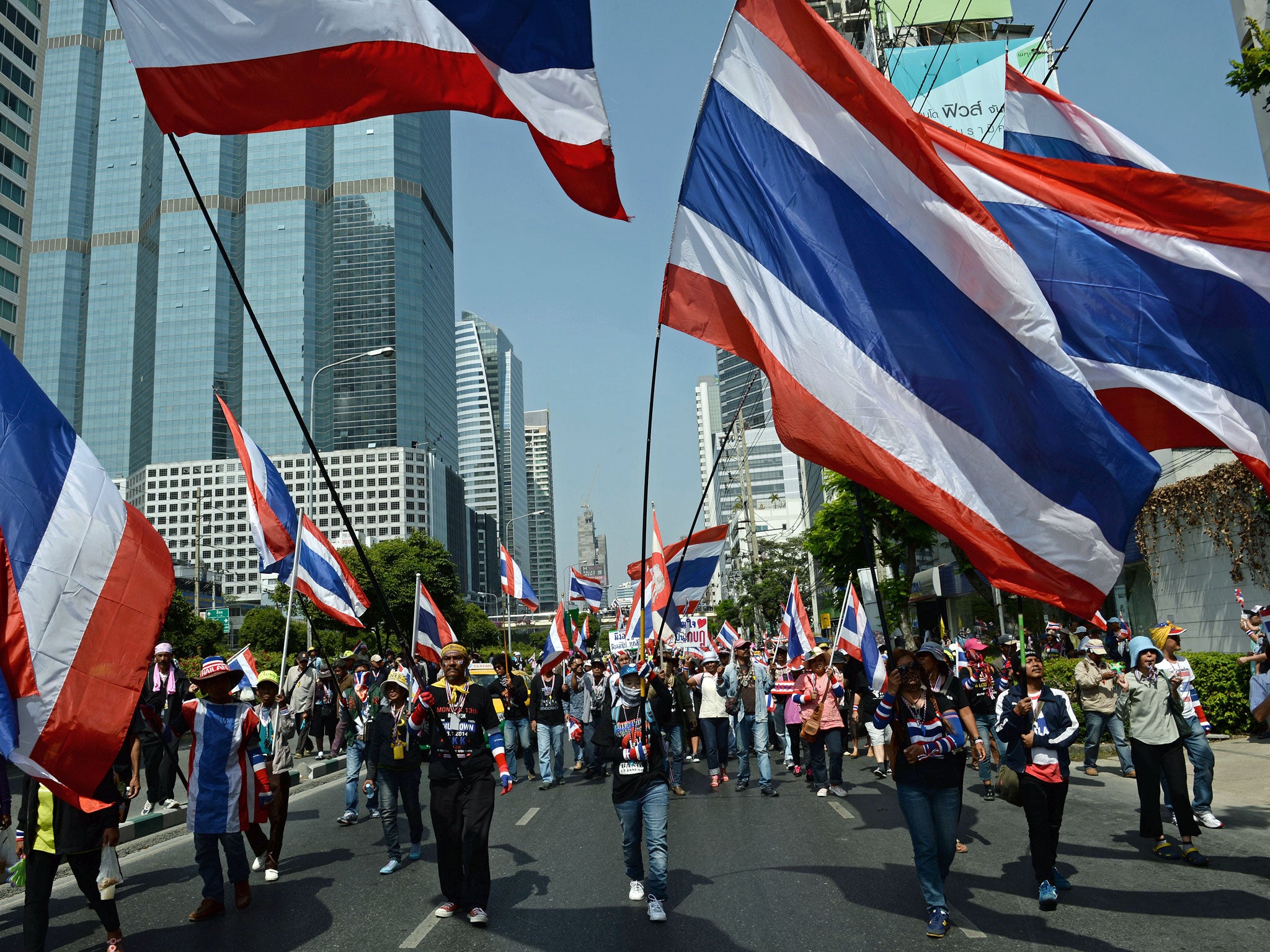Thailand declares state of emergency in bid to quell Bangkok protests
Bangkok and its surrounding provinces will be subject to the decree for 60 days

Your support helps us to tell the story
From reproductive rights to climate change to Big Tech, The Independent is on the ground when the story is developing. Whether it's investigating the financials of Elon Musk's pro-Trump PAC or producing our latest documentary, 'The A Word', which shines a light on the American women fighting for reproductive rights, we know how important it is to parse out the facts from the messaging.
At such a critical moment in US history, we need reporters on the ground. Your donation allows us to keep sending journalists to speak to both sides of the story.
The Independent is trusted by Americans across the entire political spectrum. And unlike many other quality news outlets, we choose not to lock Americans out of our reporting and analysis with paywalls. We believe quality journalism should be available to everyone, paid for by those who can afford it.
Your support makes all the difference.Thailand has declared a state of emergency in Bangkok and its surrounding provinces, in an attempt to prevent escalating violence after three months of anti-government protests.
The decree will take effect on Wednesday, lasting for 60 days and greatly expanding the power of security forces to issue curfews, and censor the media.
It will also give forces greater powers to search protesters, ban political gatherings of more than five people, arrest and detain people without charge, and close off areas of the capital.
Labor Minister Chalerm Yubumrung told a nationally televised news conference: “We need [the decree] because the protesters have closed government buildings, banks and escalated the situation, which has caused injuries and deaths.
“The government sees the need to announce the emergency decree to keep the situation under control,” he added.
He announced the measure after a cabinet meeting which had to be held at an air force headquarters in the north of Bangkok, because protesters are preventing Prime Minister Yingluck accessing her offices in Government House.
The government and anti-government protesters both blame each other for an increase in attacks at protest sites, including grenades thrown in daylight, and drive-by shootings.
On Sunday, 28 people were wounded by two grenades that were tossed at one of several protest sites set up at key Bangkok intersections.
A grenade attack on a protest march on Friday 17 January killed one man, and wounded dozens more. No arrests have been made in connection with either attack.
Protesters have been demanding the resignation of the Prime Minister since November, to make way for an appointed government to implement reforms to fight corruption.
Yingluck called elections on 2 February in an attempt to appease the situation, but the protesters have insisted they should not be held.
Additional reporting AP and Reuters .
Join our commenting forum
Join thought-provoking conversations, follow other Independent readers and see their replies
Comments